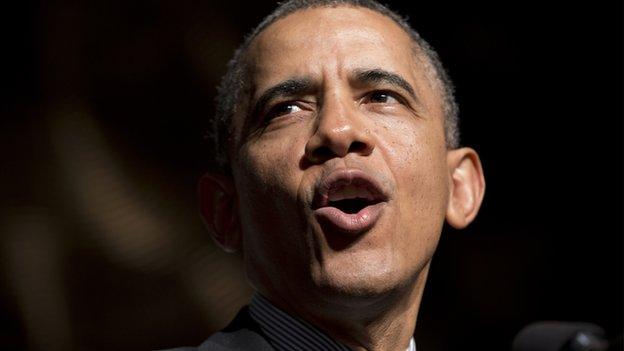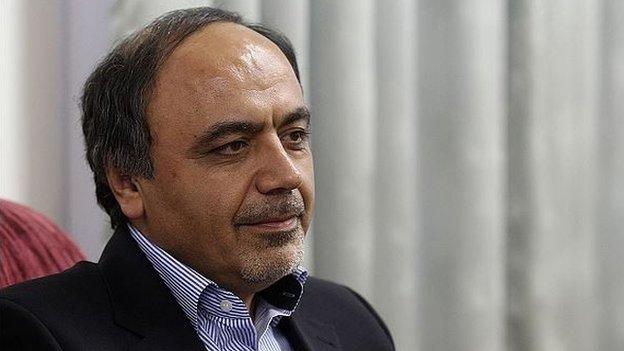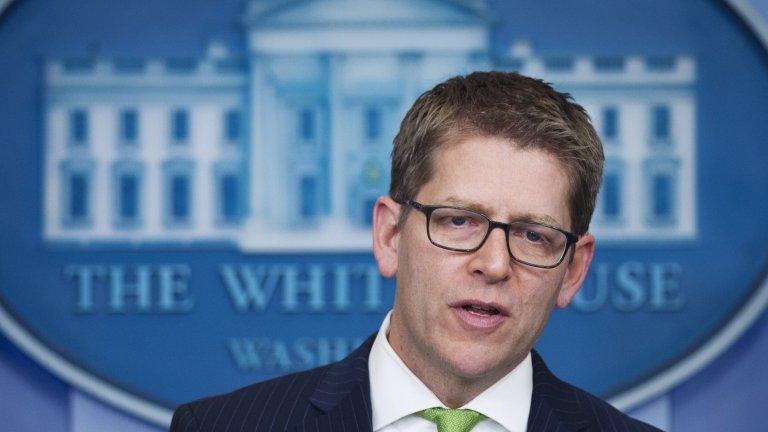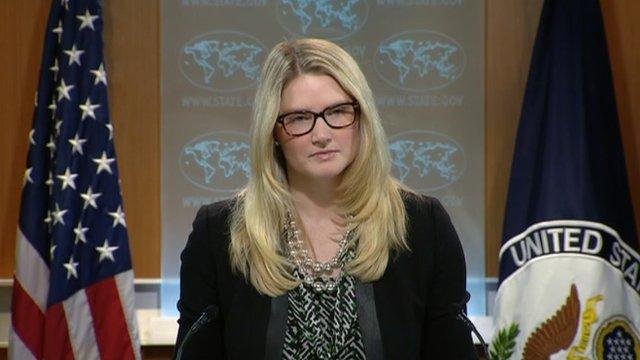Aboutalebi: Let him into the US?
- Published
- comments

President Obama has decided to deny Hamid Aboutalebi's visa request
The Obama administration announced on Friday that it has decided to deny a visa to Hamid Aboutalebi, whom Iran had selected to be its permanent representative to the UN.
Mr Aboutalebi's appointment had become a hot-button source of controversy in Washington, as politicians and the media debated whether a man who had ties to the 1979 hostage standoff at the US embassy in Iran should be allowed to enter the US.
The Iranian government contends that Mr Aboutalebi was only a translator for the hostage-takers and did not participate in the taking of the embassy.
That explanation doesn't fly with the editors of the Washington Times.
"Americans of a certain age will not forget their bitter anger at watching 52 countrymen paraded, bound and blindfolded, through the streets of Tehran, nor the endless anxiety felt while the American diplomats were held prisoner for 444 days," they write, external. "Hostage-taking is the credential of a terrorist, not of a diplomatic host."
They argue that President Barack Obama "must overcome whatever reluctance to offend radical Islam he has and draw a red line around a visa for Mr Aboutalebi, and for once allow no one to erase it."
Republican Doug Lambert, who sponsored a bill in the House of Representatives that would deny visas to UN diplomats who have conducted "terrorist activities", says Americans' "conscience" can't allow Mr Aboutalebi to enter the US.
"We, as Americans, and as people with a memory as well as a conscience, cannot allow such an official on our soil, except to be brought to trial for his participation in illegally holding our diplomats hostage," he writes, external in the Denver Post.
"While the US is required to allow UN diplomats to come to New York, it has the right to refuse visas to those seeking to work as diplomats in the UN," he writes. "Diplomatic immunity should not apply to terrorists and to their accomplices. "
Mr Lambert's bill passed unanimously in the House on Thursday, and a companion measure was similarly approved by the Senate. Mr Obama has not announced whether he will sign it into law, however.
Barry Rosen, one of the 1979 hostages, says, external Iran's failure to recognise the crimes it committed against the 52 men and women is why this issue hasn't died down.
"There has never been an acknowledgement of what occurred 35 years ago, much less an apology," he writes in the New York Times. "That silence is the greatest outrage of this controversy."
The editors of the Los Angeles Times have questioned whether the US should be making such a big deal out of the issue and fear that it could adversely affect ongoing negotiations with Iran over its nuclear programme.
They note that Mr Aboutalebi was 22 years old when the hostage incident took place.
"It's not unknown for youthful radicals to mature into middle-aged statesmen," they write, external.
"The administration has registered its displeasure with Aboutalebi's appointment. Now it should refocus on more important matters, including the nuclear negotiations."
"But even if the Aboutalebi of today were an unreconstructed anti-American, the US would be wrong to try to prevent him from taking up a position at the UN," they continue. "Having agreed to serve as host country of the international organization, the US shouldn't interfere in decisions by member states about their representation in that body any more than it should block foreign leaders it objects to from addressing the UN."
Now that Mr Obama has made his decision, the Iranians will have to decide whether to press the issue or find a new ambassador. Their next step could speak volumes about the long-term prospects for the ongoing nuclear programme negotiations and US-Iranian relations in general.
- Published11 April 2014

- Published8 April 2014

- Published2 April 2014
